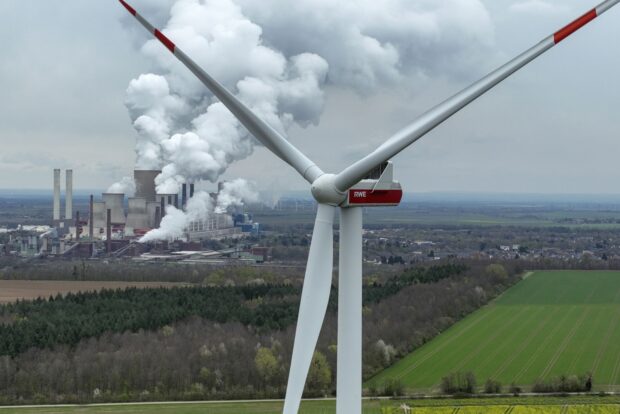Zurich Insurance Group AG will no longer underwrite new oil and gas projects, and is cracking down on clients planning to expand in metallurgical coal mining.
The restrictions also entail asking the highest-emitting corporate customers to reduce their carbon footprints, the company told Bloomberg. Further details of the policy will be included in the insurer’s climate-transition plan, which will be announced later this year.
Sierra Signorelli, chief executive of commercial insurance at Zurich, said the decision reflects the disconnect between such activities and the insurer’s overall goal of achieving net zero emissions by 2050.
“Further exploration and development of fossil fuels isn’t required for the transition,” she said in an interview. “We think it’s the right time to evolve our position.”
The move represents a meaningful policy shift for a company that currently insures fossil-fuel infrastructure spanning North Sea drilling to U.S. natural gas terminals. Exposure to such clients generated about $2.1 billion in premiums for Zurich last year, including its alternative energy business. That’s equivalent to 7 percent of the insurer’s total commercial premiums.
Zurich says its policy update is limited to new fossil-fuel projects, and that it will continue to underwrite existing ones. The company also says the measures are unlikely to have a significant impact on its bottom line.
The insurance industry has struggled to find a workable balance when it comes to tackling the issue of climate change. Zurich was one of a group of insurers that withdrew from the Net Zero Insurance Alliance last year amid GOP-led attacks questioning the legality of such coalitions.
Zurich CEO Mario Greco has since spoken out about the move, calling such climate alliances “political and bureaucratic.” Instead, he said in an August interview that “every company needs to stand for what they believe in” and not “hide behind” alliances.
Zurich has previously faced criticism for backing new oil and gas extraction projects. In a 2023 ranking of about 30 insurers’ fossil-fuel policies, the Swiss firm came in seventh, having dropped from fourth place in 2020, according to an annual scorecard published by the Insure Our Future campaign.
Nora Scheel, a climate campaigner at Swiss nonprofit Campax, which contributed to the Insure Our Future scorecard, said the new restrictions planned by Zurich mark an “important step” that will help bring the firm closer in line with some of its European peers.
Zurich plans to target 65 corporate clients this year that have the highest insurance-associated emissions, and expand that engagement to 450 of its largest customers by 2030. It wants all oil and gas customers to set interim emissions targets, to make clear and measurable commitments, and to present a credible strategy to achieve net zero by 2050.
Signorelli said clients should expect to be asked to demonstrate “meaningful investment” toward net zero goals, “not just a PowerPoint presentation.”
If Zurich doesn’t see real progress, “we would view exiting customers as a path of last resort,” she said.
Insurers will play a crucial role determining the speed and direction of the transition toward cleaner and more sustainable fuels. Few projects, whether based on fossil fuels or renewable energy sources, can get off the ground without insurance protection.
In addition to its new restrictions on some fossil-fuel clients, Zurich intends to provide more cover for newer forms of clean-energy infrastructure, including carbon capture and hydrogen power.
Signorelli said the insurer plans to expand in this area while “knowing we’re going to take some risks.”
NZIA is a part of the Glasgow Financial Alliance for Net Zero. GFANZ is co-chaired by Mark Carney, who is the chair of Bloomberg Inc.’s board and a former Bank of England governor, and Michael R. Bloomberg, the founder of Bloomberg News parent Bloomberg
Photograph: A coal-fueled power station in Germany. Photo credit: Alex Kraus/Bloomberg





















 The Future of HR Is AI
The Future of HR Is AI  State Farm Inked $1.5B Underwriting Profit for 2025; HO Loss Persists
State Farm Inked $1.5B Underwriting Profit for 2025; HO Loss Persists  AI Claim Assistant Now Taking Auto Damage Claims Calls at Travelers
AI Claim Assistant Now Taking Auto Damage Claims Calls at Travelers  Teens’ First Year on the Road Most Deadly
Teens’ First Year on the Road Most Deadly 